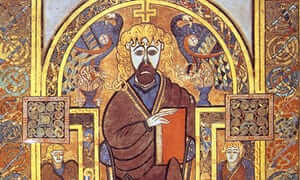
From the Book of Kells to Walter Benjamin, literary history is marked with tantalizing absences – which two bibliophiles have made it their business to go after
In June 1940, with Nazi troops on the verge of invading Paris, German-Jewish exile Walter Benjamin was preparing to leave the city. One of the leading European intellectuals of the 20th century, Benjamin was unable to acquire the necessary documents that would have made it possible for him to escape through the port city of Marseille. Instead, he joined other refugees trekking through the mountains into Spain, making their way to Lisbon where they’d fly out. Slowing Benjamin down was a heavy black suitcase, which contained a manuscript. Speaking to another traveler, Benjamin described the contents as more valuable than his own life.
In the border city of Portbou, Benjamin was informed by Spanish authorities that he would have to go back to France. That night, he swallowed 31 tablets of morphine that he had brought with him for a heart ailment. After his suicide, however, there was no trace of the black suitcase. The manuscript has never been recovered.
This story and other tales of disappeared books is recounted in Giorgio van Straten’s recent work, In Search of Lost Books. Among these lost works are those by Nikolai Gogol (Parts II and III of Dead Souls, which he burned); Sylvia Plath (a novel called Double Exposure which disappeared after her death); Lord Byron (his personal memoir, which his family had burned to protect his reputation) and Ernest Hemingway (an entire suitcase of early work, stolen from a train at Gare du Lyon).

Leave a Reply